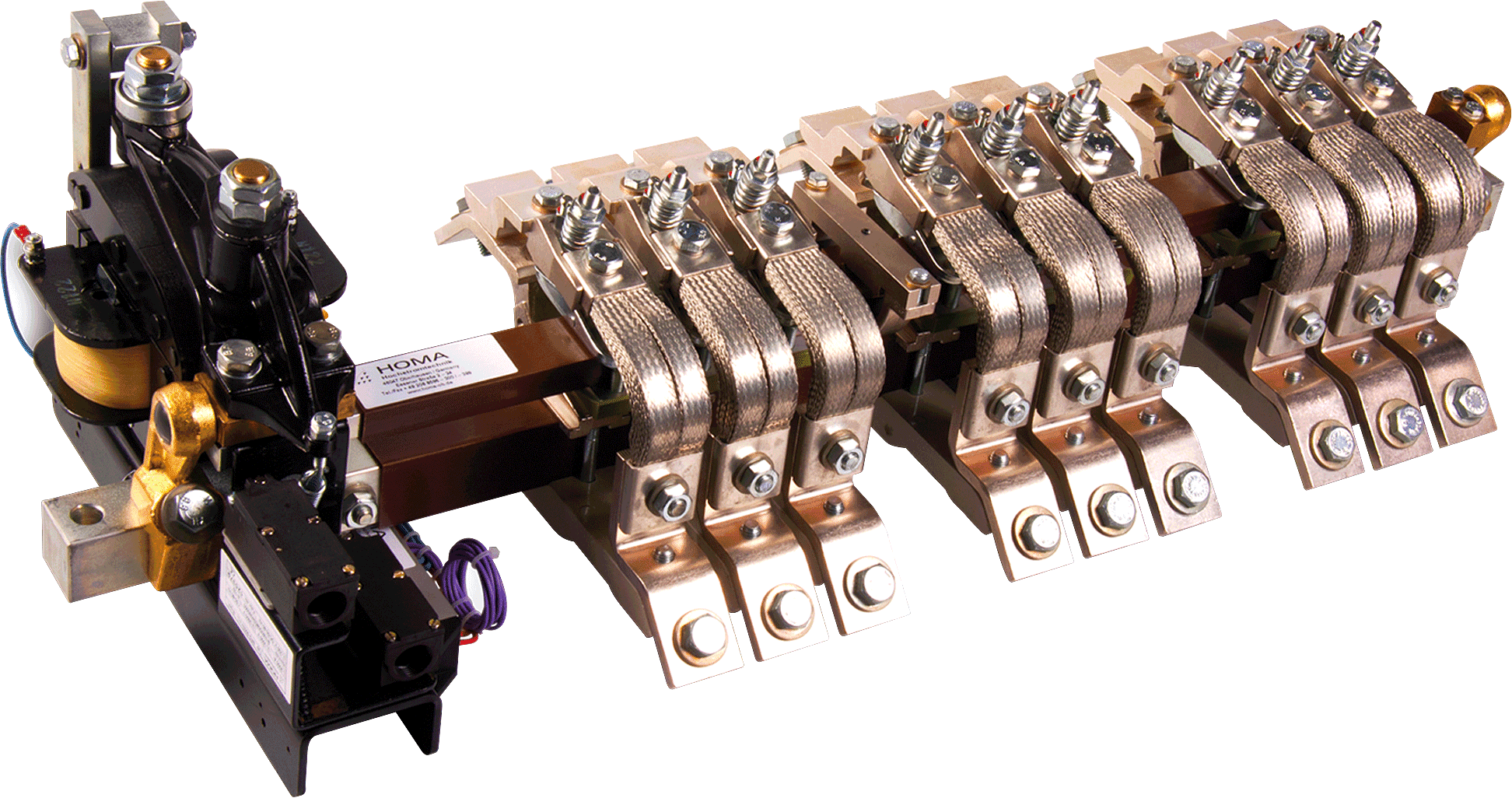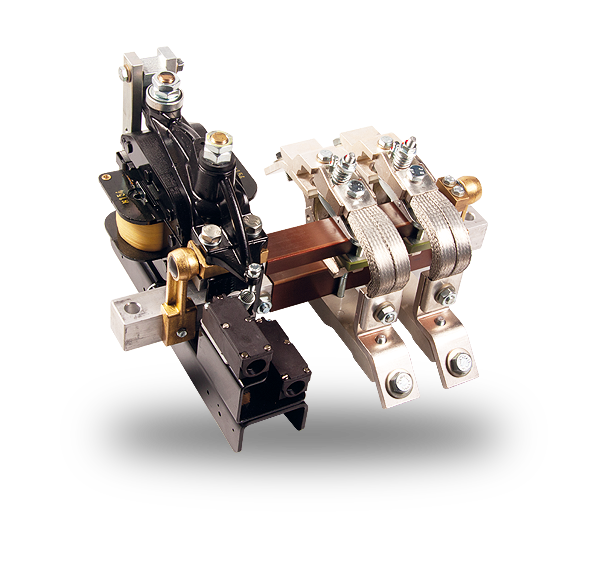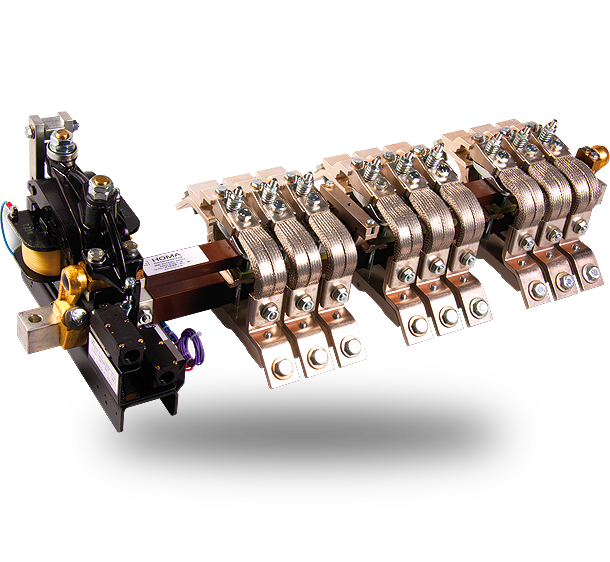HOMA Bar mounted Contactors
HOMA High Current Technology develops and manufactures AC and DC bar mounted contactors for motor starter applications, foundries and steel furnaces, solar and wind turbines, railway, battery test devices, ripple control systems, rolling mills and cranes since more than 60 years.
HOMA is a system supplier for renowned manufacturers. Beside manufacturing contactors as a component, HOMA is capable to develop, manufacture and install turnkey solutions for complex requirements including supply of control cabinets and power electronics. HOMA DC Switches are used in the starter industry as Shorting Switches, Disconnectors.
HOMA Bar mounted Contactors
In HOMA Bar mounted Contactors current-carrying components are organized on the basis of a main frame construction. All required modules are arranged on top of a single frame (bar), for example: Magnet system, Terminal plate for power circuit, Switch locking system and Movable contacts. The two examples below (G500 / HAT-2W) illustrate the construction.
TYP G500
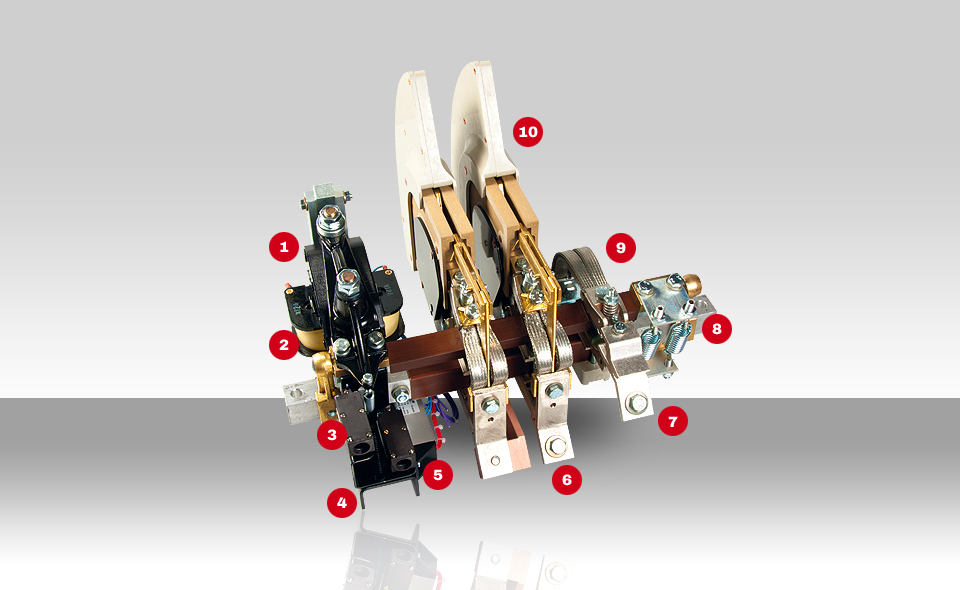
TYP HAT-2W
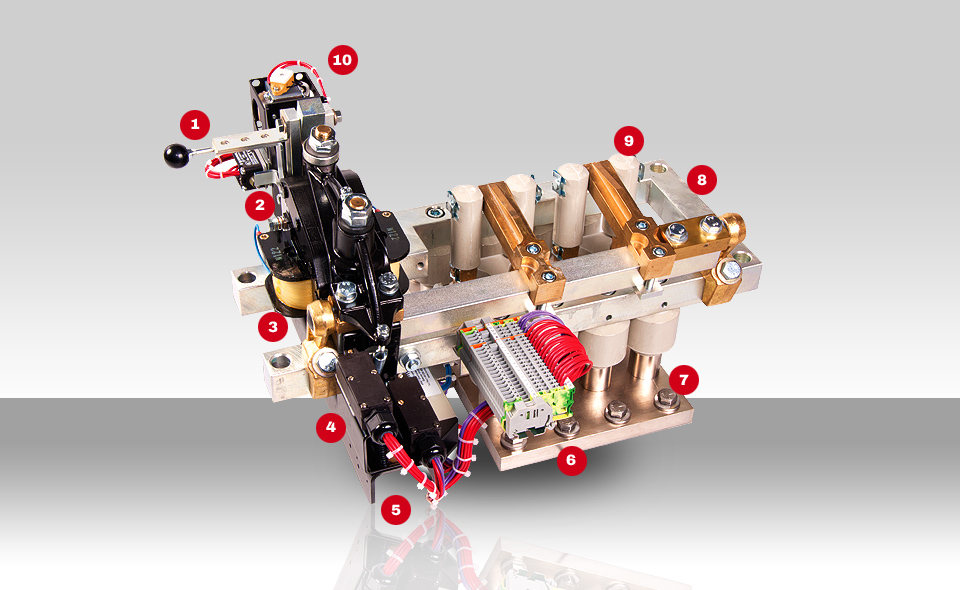
HOMA Switchgear
For over 60 years
HOMA switches are being built into different applications for more than 60 years and have been supplied to more than 100 countries. Due to the worldwide experience of HOMA, many national and international norms can be fullfield and have conducted a vast number of type tests for our products. We equip our switches with coils that can be operated worldwide with 60V to 480V AC/DC. The worldwide distribution network ensures minimal downtimes in case of a break down. HOMA is known for short delivery times and due to its modular design, switches can be assembled and delivered within 24 hours.
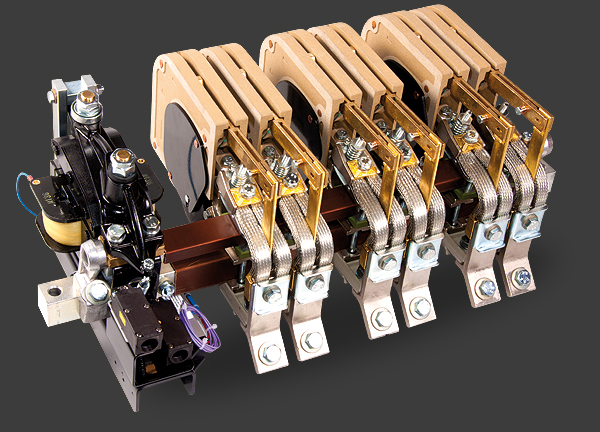
Switching
Air-break contactors and combinations of switches to deal with normal to complicated switching activities for all types of electrical loads.
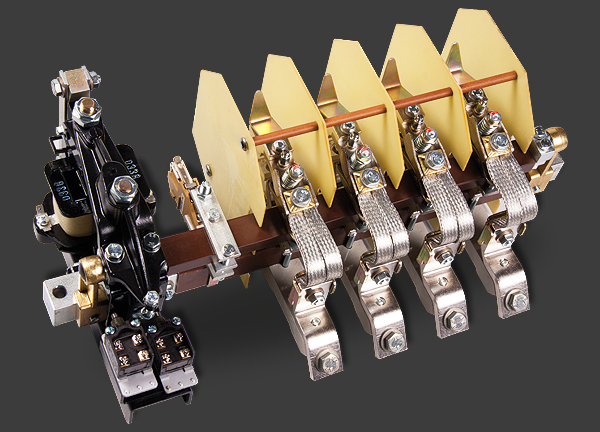
Isolation
Sliding contacts, air-break contactors and air- or water-cooled high current switches for galvanic interruption of circuits without a control current for technical or safety reasons.
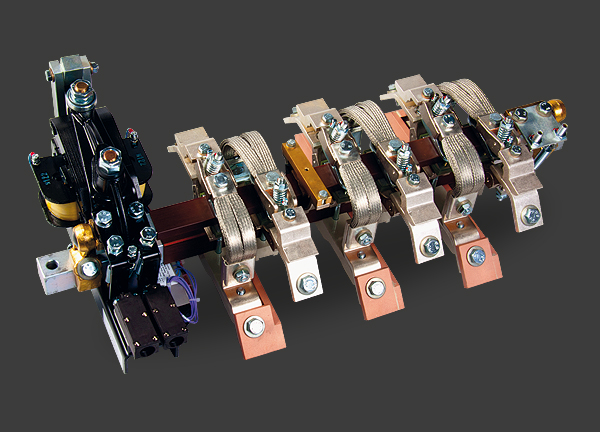
Distributing
Different types of commutators to select different sources or for an alternative supply of the electrical load circuit.
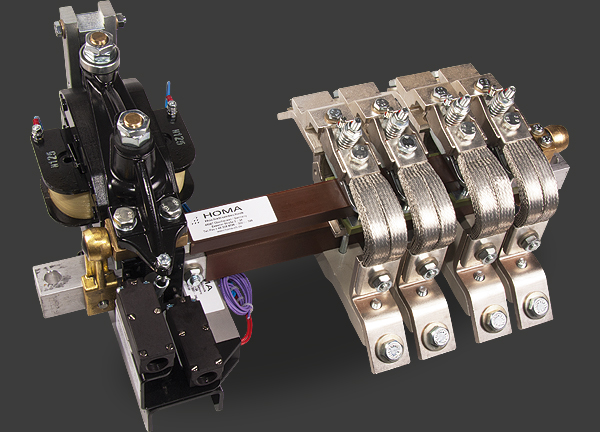
Controlling
Commutators and pole-reversal contactor including associated control systems, reversing contactors etc. for process-related reversion of the electrical current or rotational direction; braking contactors for switchoff for drives that simultaneously trigger dynamic braking systems.
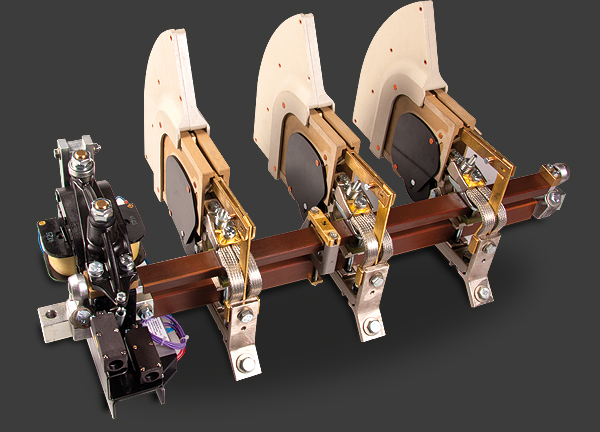
Regulating
Starting contactor / rotor-short circuit contactor, as well as starting coupling contactor / cascade coupling contactor for large machinery in association with subsynchronous static converter systems cascade; capacitor contactors for balancing or compensating inductive electrical loads. Starting, damping and discharge resistors.
Products
G800-Rail Negative Earthing and Shorting Switch

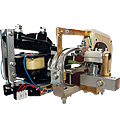
G1400-Rail Negative Earthing and Shorting Switch

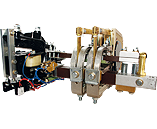
G800 On Load Contactor

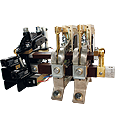
NFG 500V O.L. Negative Earthing Switch

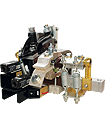
KMT Disconnector


HOMA Over-current sensor
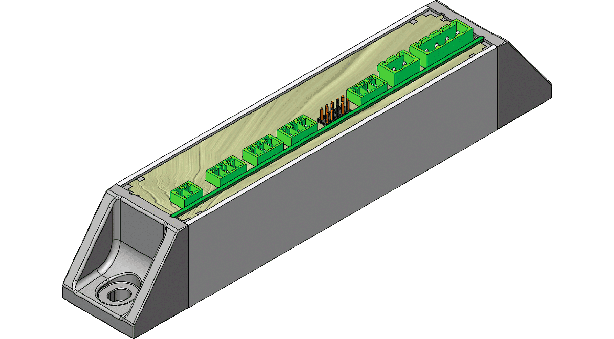
For expanding the function of large Contactors for over-current Deactivation
The device enables the monitoring of up to three phase currents. If one of the thresholds set via the jumper is exceeded, the coil current (field current) of the large contactor is interrupted and, thus, deactivated, in the event of over-current. Only one common threshold can be set for the three sensors. Both AC and DC currents can be monitored. In the case of DC currents, the triggering does not depend on the current direction. The system can also be utilised to monitor alternating current systems. The three sensors can then be assigned to each phase.
The sensors themselves must be connected directly to the busbars. They can be connected via screws or cable ties (black). The current measuring functions by measuring the field strength H that surrounds every live conductor. Due to the fact that the field strength depends on the distance of the measuring point from the conductor, the sensors must be installed in accordance with the instructions.
The sensors are delivered with a 1 m long connection cable as standard and connected to the control unit belonging to the system. Neither connection work nor adjustments need to be carried out on the sensors.

